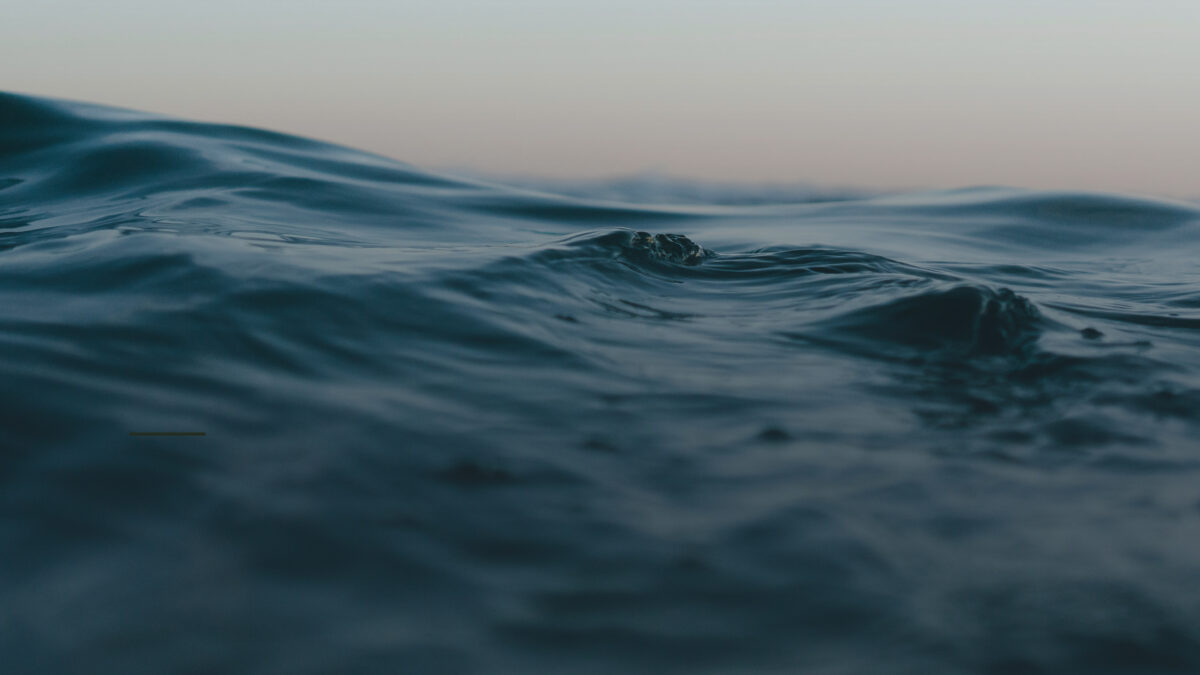
Water is critical for human life and for the sustenance of natural ecosystems.
It is also a key component in the success of infrastructure projects. Water keeps turbines turning for hydropower projects, is needed to keep solar panels clean to maximise their efficiency, and not only lubricates the drilling process required to harness geothermal energy, but it is the steam itself which generates the force to turn the turbines. It also supports food security through irrigation and fisheries and flows through pipes to deliver clean drinking water for homes, schools, clinics, and businesses.
At PIDG, we deliver infrastructure projects across Africa, south and southeast Asia. Through this work, we accelerate action to address the climate and nature crises, whilst ensuring sustainable development pathways for people living in some of the world’s most vulnerable communities. Water intersects with our work at many levels.
I would like to take this opportunity to look at water across the PIDG portfolio through the lens of our technical assistance solution which is often a critical component in ensuring that private sector and development finance can flow into this challenging sector.
The bigger picture
Across Africa, south and southeast Asia, the acceleration of climate change sees communities facing a plethora of water-related challenges:
For farmers, unreliable rainfall can see their crops lost to long periods of drought or to flash flooding.
Insufficient rainfall can reduce the output of hydro power plants, leaving homes and businesses without reliable power.
A lack of clean drinking water can lead to waterborne disease. Collecting this water can result in security risks and time lost for participation in education and economic activity – largely impacting women and girls.
For borehole users, there is a risk of over-abstraction of groundwater leading to saltwater intrusion, ruining drinking water quality, and damaging crops if it is used for irrigation. Over-abstraction over a long period can also contribute to subsidence of the land, with a recent study by Nyang Technological University (NTU) in Singapore suggesting that many of the world’s largest coastal cities – particularly those in Asia – are sinking at an alarming rate.[i]
What about the money?
A significant challenge for the sector is a lack of access to finance. Across emerging markets and developing economies there is significant unmet need, but private sector involvement in the water and sanitation sector remains limited. In more developed economies, such as Singapore, water-related investments are often viewed as low-risk ventures likely to yield modest and stable returns. However, in the regions that PIDG operates across, financing is often more complex due to persistent structural and institutional challenges.
Public finance can be limited by governments’ competing development priorities and limited fiscal space. Despite international development assistance, a significant financing gap remains if we are to achieve SDG 6 – ensuring clean water and sanitation for all.
Commercial finance, though increasingly recognised as a critical part of the solution, remains largely untapped because water infrastructure projects are capital intensive, with high upfront project preparation costs, and long payback periods. In emerging markets, these challenges are further exacerbated by issues related to regulatory frameworks, tariff structures which are not cost reflective, and the poor creditworthiness of local utilities. These factors collectively undermine investor confidence and reduce the bankability of water projects.
PIDG’s experience highlights the importance of blended finance and targeted de-risking mechanisms to unlock private capital in this space. Through catalytic capital provided by our technical assistance, project development, long term debt and guarantee solutions, PIDG has helped to catalyse investment in water infrastructure that would otherwise struggle to attract commercial interest.
How does the deployment of technical assistance enable our work around water?
PIDG deploys technical assistance funding across the complete infrastructure project lifecycle, including for the assessment of potential investment opportunities, enhancing impact, covering specific transaction costs, and building the capacity of host country partners and local investors. We also provide concessional capital (including Viability Gap Funding), which allows us to offer a blended finance solution for high-impact transactions and catalyse deployment of private sector finance. We tailor our solutions to meet the needs of specific projects and markets.
For water, this means that we can swiftly deploy our technical assistance funding where it can be most impactful.
In Africa, we deployed concessional capital as part of the financing package needed to get a large water project over the line in Rwanda. In Asia, we supported our guarantee solution, by financing part of the transaction costs, for the issue of a 20-year green bond. The Aqua One bond will be used to fund the development of a greenfield water supply project for Hanoi and its neighbouring region. As the first-ever verified green project bond in Vietnam’s water sector, the initiative has considerable potential for replication. Following on from this initial investment, PIDG InfraCo recently provided Aqua One with an equity investment, complementing funds from the bond issuance and enabling the project to reach financial close.
Technical assistance also supports crucial work to ensure that our projects are sustainable for the long term. For example, SunCulture in Kenya provides farmers with an alternative to polluting diesel irrigation pumps. PIDG is working with SunCulture to undertake rigorous research with the International Water Management Institute (IWMI) into the impact of solar-powered irrigation pumps on groundwater resources. This research will inform the company’s work with farmers to ensure that water is used most efficiently, and that pumps are sited correctly to minimise any risk of over-abstraction.
In rural Cambodia, women and girls are expected to benefit disproportionately from our KWSH water project, through improved health and hygiene, and significant time savings. A female customer in Sodor Sdom said:
“The water supply service has a unique quality in that it provides enough water to meet customer needs, has staff that are friendly and helpful, and the water I receive is clear and clean, allowing me to use it with confidence.[ii]”
Additionally, Cambodian women are underrepresented in the sector and so our funding has been used to improve gender equity at KWSH, and to provide training around gender based violence and harassment (GBVH).
In parallel, we support inclusive access by providing grant funding to subsidise water connection fees for low-income households. This targeted intervention – jointly implemented with our partner KWSH and The Stone Family Foundation – reduces the upfront cost of installation, enabling vulnerable families to access clean, piped water. By lowering the cost of connection, our grant directly supports inclusive service delivery and ensures that affordability does not remain a barrier to improved water access. This subsidy mechanism is expected to unlock wider development outcomes. Without this support, poor households would continue to rely on unsafe water sources, increasing their exposure to waterborne diseases and limiting their economic productivity.
But is water bankable?
With the right instruments, yes, water can be bankable. At PIDG, we are experts in blended finance and in leveraging our Owner funding to crowd in and mobilise multiples from the private sector and development finance institutions. The key is right-sizing the risk for each investor type.
In the case of Kigali Bulk Water in Rwanda, our debt solution, Emerging Africa and Asia Infrastructure Fund (EAAIF), acted as mandated lead arranger, mobilising finance from Dubai-based water operator Metito and the African Development Bank (AfDB). Concessional capital from PIDG helped to structure the project’s Public-Private Partnership (PPP), which was key to unlocking the required finance. The project now delivers clean drinking water for up to 500,000 people in Rwanda’s capital.
In Kenya, the Naivasha Bulk Water and Wastewater PPP demonstrates how combining public and private finance and expertise can enable transformational water projects to progress. Access to equity is key to de-risking early-stage projects and InfraCo provided equity to the project alongside funds from a wider consortium committed to the delivery of its clean drinking water and sanitation services. The project is set to improve the lives and climate resilience of more than 270,000 people and will also serve Naivasha’s Special Economic Zone (SEZ), promoting sustainable economic growth. A returnable technical assistance grant will support feasibility and environmental and social impact (ESIA) studies for the project.
KWSH saw us invest equity into a private water operator in Cambodia through our project development solution. The project is enabling the company to deliver clean water to 15,800 households in rural and semi-rural areas. As well as addressing affordability and inclusion, our grant has helped the company to develop non-revenue water (NRW) reduction strategies and a drinking water quality management plan, with the intention that lessons and tools developed under the grant will be replicated across multiple project sites, utlimately helping to raise standards across the sector. By demonstrating the viability of piped water in these communities and engaging the private sector in water purification and distribution, the investment has already attracted private capital into Cambodia’s water sector.
Where do we go from here?
The urgency of the climate and nature crises cannot be overstated, and the implications of both for the water sector are significant.
Water remains a priority sector for PIDG, reflecting its critical role in driving inclusive economic growth and climate resilience, particularly in our mandated markets.
PIDG is actively working across the water value chain, from upstream policy and planning to downstream project delivery. Through our collaboration with the World Bank’s Global Water and Sanitation Security Partnership (GWSP), we are supporting a range of activities and transactions aimed at strengthening sector governance and improving utility performance. We are also actively supporting the public sector in Zambia and Kenya to structure water sector PPPs, to enable private developers to invest in bulk water production facilities, bringing new and much needed additional sources of capital to the sector. We are also exploring water project opportunities (including PPP projects) in the Philippines and Vietnam.
Water is intrinsically tied to effective natural resource management, and we recently broadened the scope of our technical assistance to incorporate nature based solutions into new and existing PIDG projects. We are, for example, looking at storm water management, and funding studies to establish how biodiversity and water re-use can be built into the design of our rooftop solar investment in Sri Lanka.
We are also working across the Group to develop nature as infrastructure, exploring how ecosystem services – wetlands, mangroves, afforestation, reforestation, and regeneration projects – can deliver bankable investment opportunities across Africa, south and southeast Asia.
All of these initiatives are designed to expand access, improve service quality, and build resilience in communities most vulnerable to water insecurity and the impacts of climate change.
[i] Sea-level rise from land subsidence in major coastal cities Accessed 02.07.25
[ii] PIDG-2024-Sustainability-and-Impact-report-Final-Digital.pdf Accessed 27.08.25 (Page 57)
